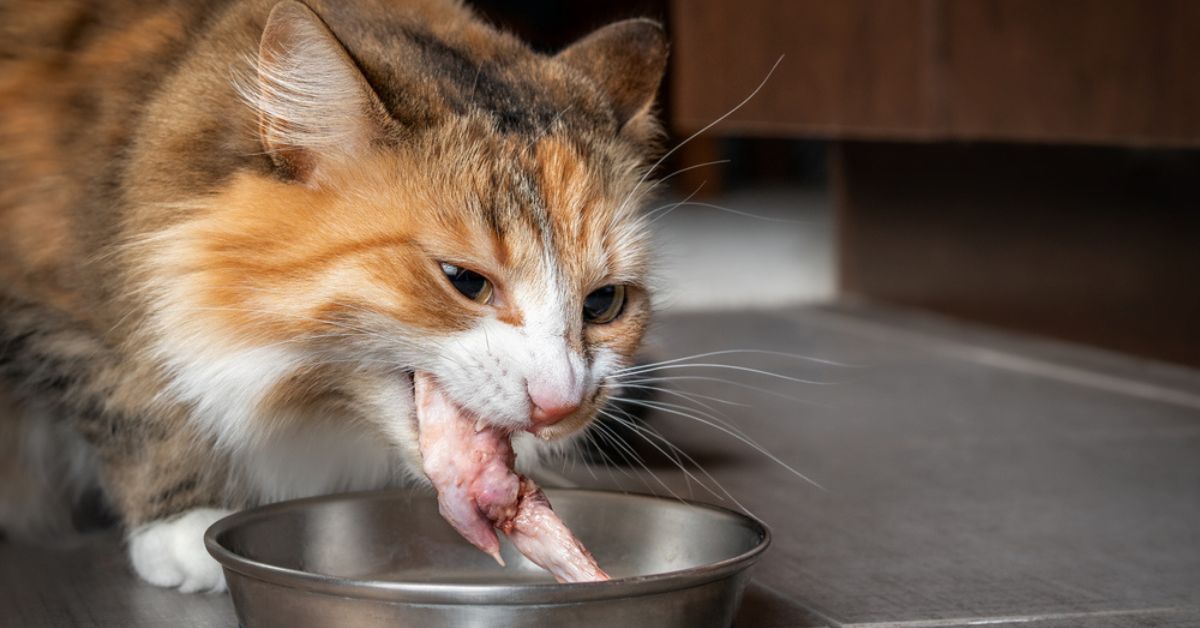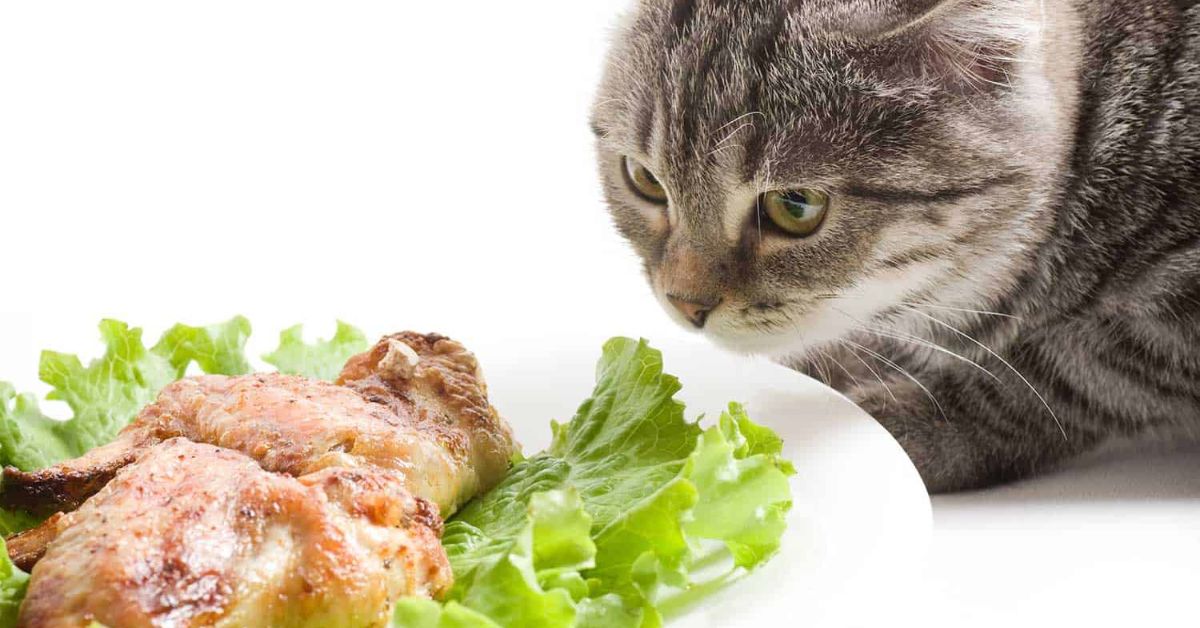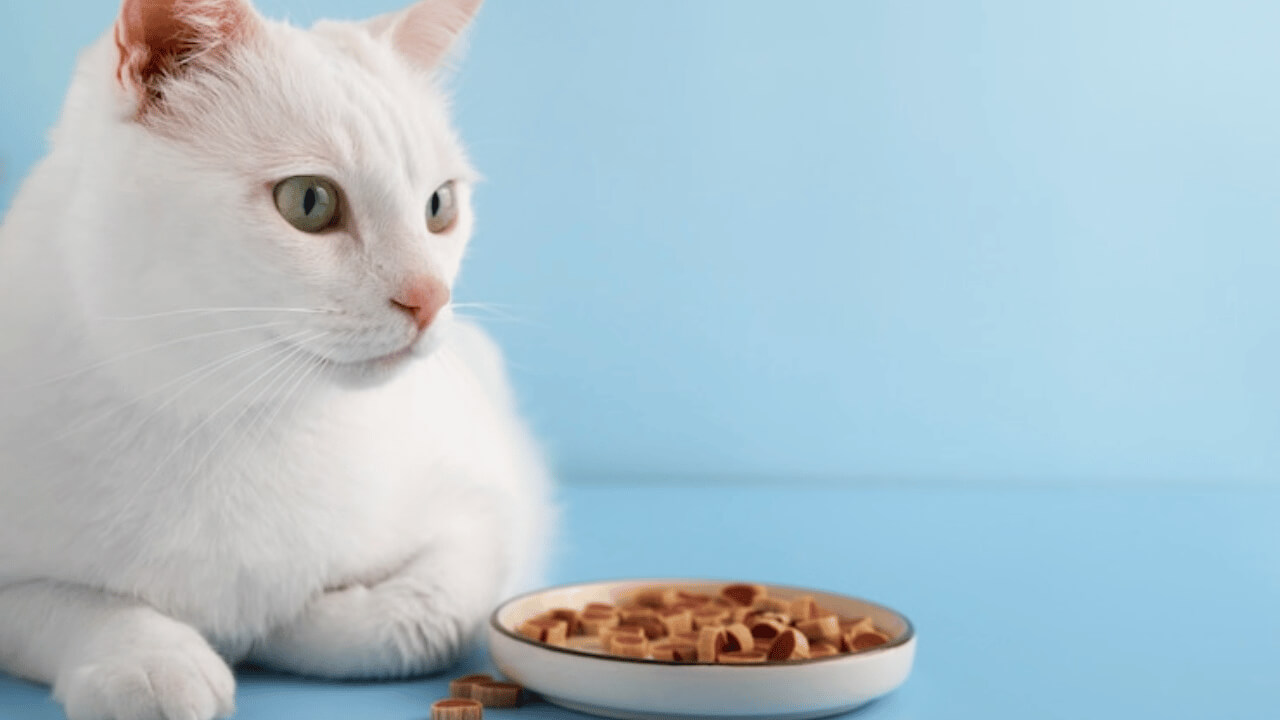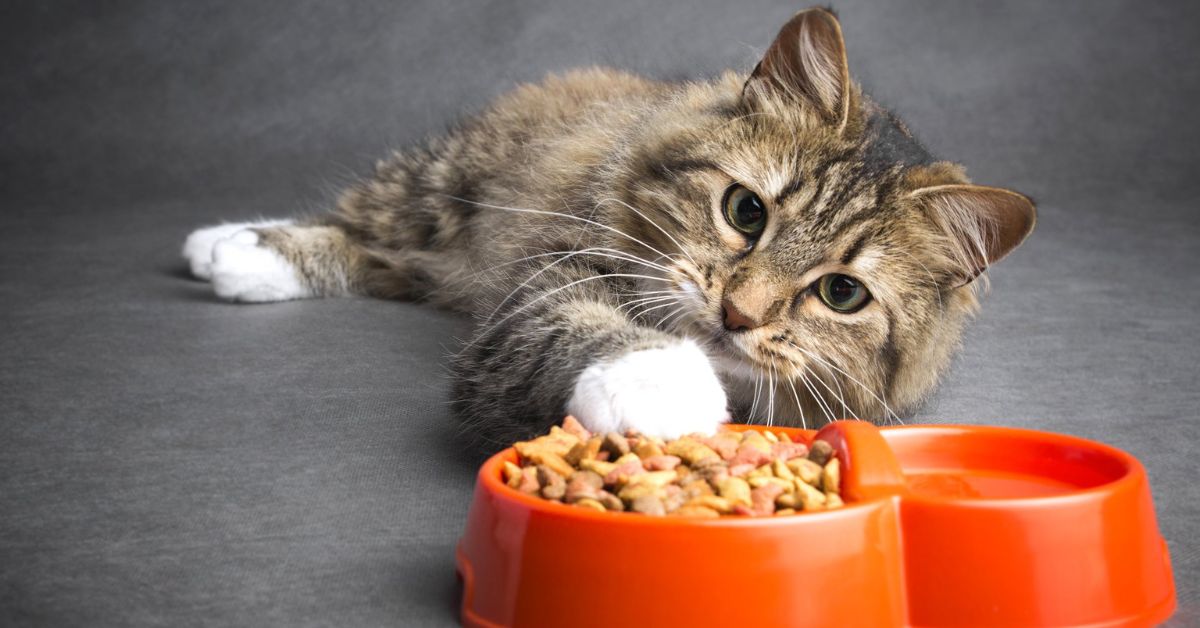If you’re a cat owner, you’ve probably wondered about the best diet for your feline friend. Recently, there’s been a trend towards feeding cats raw food, particularly raw chicken. But is it safe? Can your cat eat raw chicken every day? This blog post will explore the pros and cons of feeding raw chicken to your cat, how to safely prepare it, and why consulting your vet is essential. You’ll be well-equipped to decide about your cat’s diet by the end.
Can Your Cat Eat Raw Chicken?
Can Your Cat Eat Raw Chicken, but it’s essential to consider several factors. Raw chicken can be a source of pathogenic bacteria like Salmonella and E. Coli, which can harm cats and humans. If you feed your cat raw chicken, ensure it is fresh and handled with strict hygiene to minimize risk.
Occasional raw chicken can offer nutritional benefits, such as protein and taurine, which are essential for feline health. However, it’s advisable to consult a veterinarian before making raw chicken a regular part of your cat’s diet.
Additionally, ensure the chicken is bones-free, as they can pose a choking hazard or cause internal injuries. Always prioritize your cat’s safety and health.
Nutritional Benefits and Risks of Raw Chicken in a Cat’s Diet
Feeding raw chicken to cats is a hot topic among pet owners and veterinarians. Proponents argue that raw chicken is closer to what cats would eat in the wild, offering a more natural and nutrient-rich diet. Raw chicken is packed with protein, essential amino acids, and moisture, which benefit your cat’s muscle development and overall health.
However, raw chicken also carries risks. It can harbour harmful bacteria like Salmonella and E. coli, which can cause severe illness in cats. Additionally, bones in raw chicken can pose a choking hazard or cause internal injuries. Therefore, weighing the nutritional benefits against the potential risks is crucial when deciding whether to feed your cat raw chicken.
Veterinary Perspectives on This Topic
Veterinarians have mixed opinions about feeding raw chicken to cats. Some vets support it, provided it’s done correctly, as it can enhance your cat’s diet with natural proteins and nutrients.
However, many vets caution against it due to the health risks involved. They emphasize that cats’ digestive systems are not immune to bacteria found in raw meat, and improper preparation can lead to serious health issues.
Veterinarians also stress the importance of a balanced diet. While raw chicken can be a protein source, it shouldn’t be the sole component of your cat’s meals. Including a variety of nutrients is essential for your cat’s overall well-being.
How to Safely Introduce Raw Chicken into Your Cat’s Diet
Introducing raw chicken into your cat’s diet requires careful steps to ensure safety. Start by consulting with your veterinarian to confirm it’s appropriate for your cat. Begin with small portions of high-quality, fresh, raw chicken. Ensure you handle the chicken with hygienic practices, washing your hands and surfaces thoroughly.
Gradually mix small amounts of raw chicken with your cat’s current food to allow their digestive system to adjust. Monitor your cat for any adverse reactions like vomiting or diarrhoea. Remove bones to prevent choking and internal injuries. Rotate the raw chicken with other protein sources to provide a balanced diet. If your cat shows signs of illness at any point, discontinue the raw chicken and consult your veterinarian immediately.
Guidelines for Proper Handling, Preparation, and Storage
Introducing raw chicken to your cat’s diet requires careful handling, preparation, and storage to minimise health risks. Here are some guidelines to follow:
- Handling: Always wash your hands thoroughly before and after handling raw chicken. Use separate utensils and cutting boards for raw meat to avoid cross-contamination.
- Preparation: Cut the raw chicken into small, manageable pieces to reduce choking hazards. Remove any bones that could splinter and cause internal injuries.
- Storage: Store raw chicken in airtight containers in the refrigerator and use it within 48 hours. If you need to store it longer, freeze the chicken and thaw it in the fridge before serving.
Your Cat’s Nutritional Needs
Before incorporating raw chicken into your cat’s diet, it’s essential to understand their nutritional needs. Cats are obligate carnivores, requiring a diet rich in animal protein. However, they also need other nutrients like taurine, vitamins, and minerals, which may not be present in raw chicken alone.
Balancing your cat’s diet with raw and commercial cat food can ensure they receive all necessary nutrients. Consider adding supplements or other protein sources to round out their diet.
The Importance of Consulting a Veterinarian
Consulting a veterinarian is crucial when making dietary changes for your cat, including introducing raw chicken. A veterinarian can provide expert advice tailored to your cat’s health needs, age, and medical history. They can help assess potential risks of bacterial infections like Salmonella or E. Coli and advise on safe handling and preparation practices.
Veterinarians also ensure your cat receives a balanced diet, as relying solely on raw chicken can cause nutritional deficiencies. They can suggest supplements or alternate protein sources to maintain optimal health. Additionally, regular vet consultations allow for monitoring of your cat’s health and promptly addressing any adverse reactions to new foods. Prioritizing veterinary guidance ensures your cat’s diet is safe, balanced, and beneficial for their well-being.
Why Professional Advice and Regular Check-Ups Are Crucial
Consulting your veterinarian before significantly changing your cat’s diet is vital. Vets can provide personalized advice based on your cat’s health history and needs. They can also recommend safe practices for feeding raw chicken and suggest appropriate supplements to ensure a balanced diet.
Regular check-ups are equally important. Vets can monitor your cat’s health and detect issues early, allowing timely intervention. They can also adjust dietary recommendations based on your cat’s response to the new diet.
Discussing Specific Health Conditions and Concerns
Certain health conditions may affect whether feeding raw chicken suits your cat. For example, cats with compromised immune systems or gastrointestinal issues may be more susceptible to bacterial infections from raw meat. Discussing these concerns with your vet can help you make an informed decision.
Your vet can also advise you on gradually introducing raw chicken to minimize potential adverse reactions. They can guide portion sizes and frequency to ensure your cat’s diet remains balanced and nutritious.
Real-Life Stories and Testimonials
Real-life stories and testimonials from cat owners offer valuable insights into the effects of dietary changes, such as introducing raw chicken. Many pet owners share positive experiences, reporting improved coat condition, increased energy levels, and enhanced overall health after switching to a raw diet. For instance, a cat owner, Sarah, noticed that her cat, Whiskers, developed a shinier fur coat and showed fewer digestive issues after incorporating raw chicken into his meals.
Conversely, some stories highlight the importance of caution and veterinary consultation. Jane’s cat, Mittens, experienced severe diarrhoea and required medical attention after a similar dietary change. These testimonials underscore cats’ diverse responses, reinforcing the need for gradual introduction and professional advice to ensure safety and health.
Sharing Experiences of Cat Owners
Many cat owners have successfully incorporated raw chicken into their pets’ diets, citing various benefits. For instance, Sarah from California noticed that her cat’s coat had become shinier and that her cat’s energy levels had increased after switching to a raw diet. She emphasizes the importance of thorough research and consulting a vet before changing.
John from New York shares a similar experience. He found that his cat’s digestion improved significantly with raw chicken. John recommends starting with small portions and gradually increasing the amount to allow your cat’s digestive system to adjust.
These testimonials highlight the potential benefits of feeding raw chicken to cats. However, they also underscore the need for careful preparation and veterinary guidance to ensure a safe and balanced diet.
Conclusion
Whether to feed your cat raw chicken involves considering the nutritional benefits, potential risks, and expert advice. While raw chicken can offer valuable nutrients and align with a natural diet, it also carries health risks that require careful management.
Consulting your veterinarian is crucial for personalized advice and ensuring your cat’s diet remains balanced and safe. Real-life experiences from other cat owners can provide additional insights and tips for successfully incorporating raw chicken into your cat’s meals.
By weighing these factors and making informed decisions, you can provide your cat with a nutritious and satisfying diet. If you’re ready to explore further, consider booking a consultation with a veterinary nutritionist to tailor a diet plan that meets your cat’s needs.
FAQ
Is it safe to give raw chicken to cats?
Yes, Raw chicken may be fed to cats. Advocates of raw diets for cats typically point out that these meal plans let the cat eat the food that cats are meant to eat by nature. Who is preparing the mouse that a sly wild cat just nabbed for supper?
What if my cat accidentally ate raw chicken?
The main danger of eating raw meat, especially raw chicken, is that it might infect your cat with microorganisms. Since many diets are nutritionally inadequate, the primary danger involved with a long-term raw food plan for cats is their nutritional competence.
Can cats get worms from raw chicken?
Raw meat can give your dog or cat a worm infestation, but this only occurs when the food isn’t properly handled, examined, or processed. Pet owners who genuinely care about their animals’ lifespan, health, and safety are more inclined to support businesses that put food safety and handling first.













